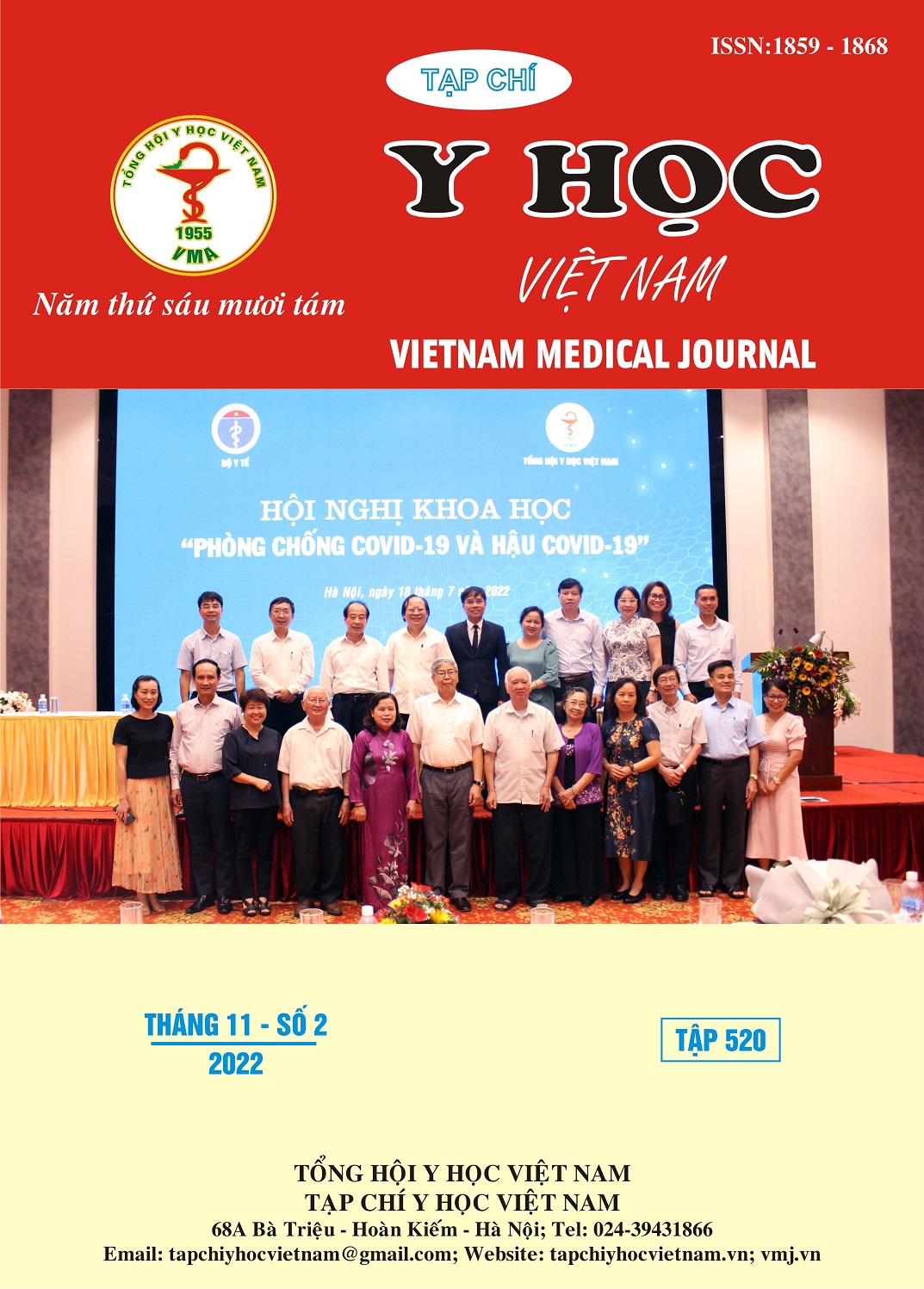QUALITY OF LIFE AMONG DIABETES PATIENTS WITH COMPLICATION OF CARDIOVASCULAR DISEASES
Main Article Content
Abstract
Objective: Estimate quality of life and associated factors among diabetes patients with complication of cardiovascular diseases. Method: A cross sectional study was implemented at Thai Nguyen Health center. Participants were recruited among those registered for diabetes management regularly. Face to face interviews were conducted to collect data on quality of life by using EQ5D and other variables such as general characteristic, diabetes management. Results: Quality of life was 0.62+/-0.5. Age and blood glucose were predictors of quality of life. Other variables such as demographic factors, disease characteristics, therapy, adherence were not significant to predict quality of life among these participants. Conclusion: Quality of life among these patients was low. Well control blood glucose may help to improve quality of life for diabetes patients with complication of cardiovascular diseases.
Article Details
Keywords
Quality of life, diabetes, cardiovascular diseases
References
2. Y. Zheng, S. H. Ley, and F. B. Hu, “Global aetiology and epidemiology of type 2 diabetes mellitus and its complications,” Nat. Rev. Endocrinol., vol. 14, no. 2, pp. 88–98, 2018, doi: 10.1038/nrendo.2017.151.
3. Cho and R. A. K. Possomato-Vieira, José S. and Khalil, “乳鼠心肌提取 HHS Public Access,” Physiol. Behav., vol. 176, no. 1, pp. 139–148, 2016, doi: 10.1007/s40273-019-00775-8.Estimating.
4. Nguyễn Thị Phương Lan, Hoàng Minh Nam, "độ thỏa dụng về sức khỏe của bệnh nhân tiểu đường tuýp 2," Tạp chí Y học Việt Nam, Tập 472, số tháng 11, .
5. J. E. Brazier and J. Roberts, “The estimation of a preference-based index from the SF-12.,” Med. Care, vol. 42, no. 9, pp. 851–859, 2004.
6. D. Laghousi, F. Rezaie, M. Alizadeh, and M. A. Jafarabadi, “The eight-item Morisky Medication Adherence Scale: Validation of its Persian version in diabetic adults,” Casp. J. Intern. Med., vol. 12, no. 1, pp. 77–83, 2021, doi: 10.22088/cjim.12.1.77.
7. A. A. Kiadaliri, U. G. Gerdtham, B. Eliasson, S. Gudbjörnsdottir, A. M. Svensson, and K. S. Carlsson, “Health utilities of type 2 diabetes-related complications: A cross-sectional study in Sweden,” Int. J. Environ. Res. Public Health, vol. 11, no. 5, pp. 4939–4952, 2014, doi: 10.3390/ijerph110504939.
8. V. B. Prajapati, R. Blake, L. D. Acharya, and S. Seshadri, “Assessment of quality of life in type II diabetic patients using the modified diabetes quality of life (MDQOL)-17 questionnaire,” Brazilian J. Pharm. Sci., vol. 53, no. 4, pp. 1–9, 2017, doi: 10.1590/s2175-97902017000417144.
9. “Ann Acad Med Singap 2004 Robinson.” pp. 1–2, 2004.
10. A. K. Abualhommos, A. H. Alturaifi, A. M. A. Bin Hamdhah, H. H. Al-Ramadhan, Z. A. Al Ali, and H. J. Al Nasser, “The Health-Related Quality of Life of Patients with Type 2 Diabetes in Saudi Arabia,” Patient Prefer. Adherence, vol. 16, no. May, pp. 1233–1245, 2022, doi: 10.2147/PPA.S353525.


